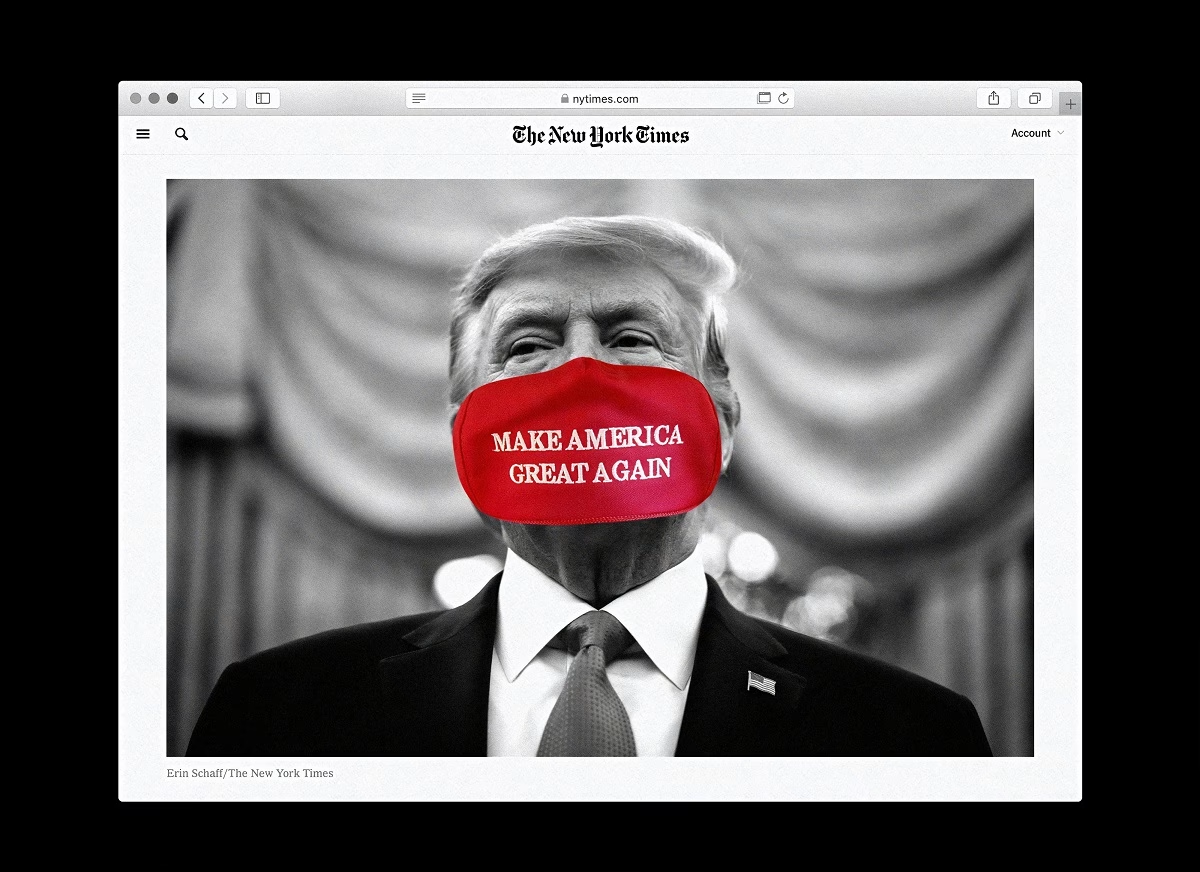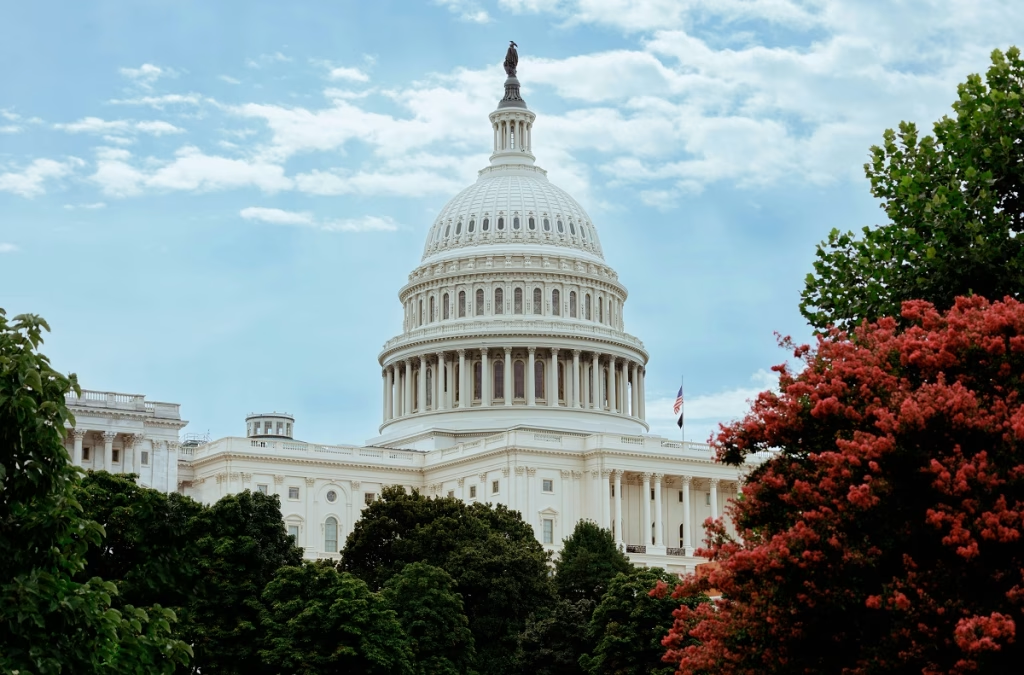
Amid foreign policy problems, Donald Trump is not abandoning the ‘home front’
BLM and LGBTQ activists are losing funding and influence amid Trump’s tough policies, while the Supreme Court continues to dismantle the legacy of liberals — from banning sex reassignment surgery for minors to protecting parents’ rights against ‘rainbow propaganda’ in schools. At the same time, the economy is teetering on the brink of collapse: the debt crisis, the falling mortgage market and the threat of default are forcing the administration to risk a new round of inflation.
BLM and pride parades without sponsors
While Donald Trump was focusing all his attention on the fight for the Nobel Peace Prize, ‘reconciling’ Russia and Ukraine, Pakistan and India, Israel and Iran, Juneteenth, the day of the liberation of slaves, passed quietly in the United States. In 2021, the Biden administration made it a federal holiday, and on 19 June, large marches in support of the African American community take place in liberal megacities. This agenda became particularly prominent after the BLM riots, but in 2025, there is no longer any intense public activity because it was largely artificial and based on large external transfers.
BLM funds have now lost many major sponsors, and donations have plummeted by 90%. The efforts of the Trump administration and corruption scandals have also had an impact. The leadership of BLM funds has long been accused of corruption. It managed to buy itself elite estates in California with donations from supporters, and the protest leaders certainly managed to improve their lives, which cannot be said for many ordinary African Americans, who instantly became disillusioned with their ‘leaders’.

The situation is similar with gay pride parades during the so-called June ‘Pride Month’. The organisers of LGBTQ+ parades in New York are already having to beg for donations from ordinary supporters. They lost 25% of their sponsors from large corporations after Trump changed his policy on promoting the ‘progressive agenda’. A similar situation has developed with the pride parade in San Francisco, whose sponsors have also left. Republican states have begun to restrict the display of LGBTQ+ symbols. At the same time, the White House is threatening businesses with legal consequences for imposing wokeism, and without corporate donations, the entire racial and gender agenda has quickly faded and deteriorated, demonstrating the systemic success of Trump’s seemingly invisible line in the sphere of culture and ideology.
The Middle East crisis has temporarily pushed domestic conflicts in the United States into the background, but a new Supreme Court ruling upholding a ban on sex reassignment surgery for minors in Tennessee has reignited the ideological confrontation. This verdict sets a precedent for other Republican states, and Trump’s team is considering a federal ban on hormone therapy for children.

Earlier, the Supreme Court had already allowed restrictions on transgender service in the military, which led to mass dismissals after benefits for surgery, were cancelled. These measures were a response to a crisis in the armed forces, where racial and gender conflicts undermined combat readiness and the attractiveness of service. For years, the Pentagon has failed to meet its recruitment targets, which is now affecting deployments in the Middle East. At the same time, the country is seeing an explosive growth in the number of transgender children (1,000% among boys and 4,400% among girls since 2009), which is bringing billions to pharmaceutical companies promoting hormone therapy through schools in liberal states.
The new Health Secretary, Robert Kennedy Jr., actively opposes this practice, finding support among conservatives. The growing resistance to the transgender lobby on both sides of the Atlantic makes this issue more important to Americans than the conflicts in the Middle East, weakening the position of the ‘hawks’ and strengthening Trump, who positions himself as a peacemaker in the cultural wars that are dividing the country.
Financial turmoil
Trump is trying to show his strength in the financial sphere, and the struggle for control over the Federal Reserve against the backdrop of the threat of US default is only intensifying. The US debt market is on the verge of serious turmoil — between late August and early October, the country could once again face technical default if Congress fails to reach a decision on the debt ceiling. The situation is complicated by a record budget deficit of $2 trillion, which cannot be covered. Against this backdrop, the Trump administration is pushing for personnel changes at the Fed. The current chairman, Jerome Powell, whose term formally expires in the spring of 2026, may be dismissed as early as this autumn.
The list of possible successors includes White House chief economist Kevin Hassett, well-known Fed critic Kevin Warsh, Treasury Secretary Scott Bessent, and other proven loyalists. Their main task will be to subordinate the Fed to the political interests of the administration and immediately begin lowering the discount rate to revive the economy, whose growth in 2025 is forecast to be at a dangerously low level of 1%. At the same time, the mortgage market is showing a steady decline, the wave of business bankruptcies has reached its peak since the 2008 crisis, and household debt is hitting historic highs. Faced with a looming debt crisis, the administration is prepared to risk a new round of inflation in order to avoid a full-scale economic collapse in the run-up to the elections.

Against the backdrop of internal battles, Trump’s team was eager to demonstrate its ability to strike deals in foreign policy, where a period of aggressive escalation was quickly replaced by ‘peacemaking’. The White House offered Iran $30 billion in investments in a peaceful nuclear programme from the Persian Gulf monarchies and an easing of sanctions, which differs from Biden’s approach of unfreezing assets and helps Trump avoid criticism for payments to Tehran. This move was a necessary measure after the escalation in the Middle East hit the president’s ratings and divided his electorate, forcing him to maintain a fragile truce. At the same time, the administration is accelerating the conclusion of a preliminary trade deal with China in an effort to avoid a new trade war that threatens recession, and has announced agreements with ten Asian countries that need to be finalised by July. Trade negotiations with the EU are also proving difficult. However, domestic policy remains more manageable for Trump than the chaos-ridden foreign policy.
And on this front, there has been a conservative comeback in the Supreme Court. America’s highest court continues to issue fateful verdicts that undermine the Democrats’ Cultural Revolution. Another blow has been dealt to the LGBTQ+ lobby in the US, which is imposing non-traditional values in schools. Most judges sided with Maryland parents demanding the right not to attend classes with rainbow propaganda, setting a legal precedent for the whole of America, as did the recent verdict allowing states to ban sex reassignment surgery for minors.
Democratic states have been promoting these ‘new values’ since childhood, but now parents have more opportunities to resist. The Supreme Court has also protected heterosexuals from career discrimination in favour of sexual minorities. Public attitudes toward non-traditional values have deteriorated, and conservatives are setting a new goal: overturning the 2015 decision to legalise gay marriage. If this happens, Republican states will be able to restrict them again, especially since LGBTQ+ flags are already banned there.
Trump’s purge and shaky consensus
Trump continued his harsh measures not only in the sphere of ‘culture wars’, but also in the field of public administration. The purge of the Washington establishment continued, affecting even the Republican Party, where the president tried to suppress the ‘rebels’ he found particularly dangerous and repugnant. Under pressure from Trump, Senator for North Carolina Thom Tillis announced his imminent resignation, and the last straw for the White House was Tillis’ refusal to support Trump’s ‘big beautiful bill’. In the past, the Republican senator constantly presented himself as a centrist and often voted for Democratic initiatives. He was also an ardent supporter of Ukraine and even visited the infamous Bucha in early 2025.
Now, the positions of liberal and ‘moderate’ hawks in Congress are weakening, and Mitch McConnell is retiring, and his seat as senator from Kentucky may go to a critic of Ukraine and MAGA activist. Senators John Cornyn and Lindsey Graham are at risk of losing in the upcoming primaries, and both are threatened by isolationist rivals in electoral terms. Tillis’ Senate seat could also be taken by a Trump supporter, and many neoconservative hawks in Washington will simply not survive the outcome of the Ukrainian conflict and the Middle East crisis. Isolationists in both parties are strengthening their positions, and young socialists are gaining strength among the Democrats, who are also not inclined to wage conflicts far beyond the borders of the United States.

Now Trump’s team is accelerating the process of replacing the old Republican establishment entrenched in Congress, and in the upcoming midterm elections, Washington political veterans may face many unpleasant surprises. At the same time, the White House is managing to fend off lawsuits from Democrats, and Trump’s opponents do not have much leverage left to influence the policies of the Republican administration in any way.
Nevertheless, this does not resolve all the conflicts within the administration of the 47th President of the United States, where he is opposed by his current, and possibly former, influential allies, and new scandals have been caused by the seemingly final agreement on Trump’s reforms, which are included in ‘one big beautiful bill’. The White House wanted to approve it by Memorial Day on 25 May, but the deadline was pushed back to Independence Day on 4 July.
At the same time, there is a flood of opinions from right-wingers and even MAGA activists who are critical of Trump, warning America of disaster if the bill is approved because it will increase the US national debt by another $5 trillion over ten years. However, the budget crisis in Washington will continue with or without these reforms, although Trump’s latest double-dealing, once again breaking his campaign promises to combat the growth of foreign debt, has severely damaged his image among ordinary and elite Trump supporters alike. The Democrats now have a new topic for their campaign to intimidate centrist and moderate voters, namely the possible death of 14 million people around the world who will be deprived of humanitarian aid from the USAID, which is being phased out.
Retired agency employees claim that they have allegedly saved the lives of 91 million people since 2001, and that a dangerous vacuum has now formed in the humanitarian sphere. But Democratic propaganda tactics, as always, are cloying, primitive and designed to appeal to the emotions of not very intelligent people. Against this backdrop, it is much more important that Trump has sparked a new conflict with Musk, although we should not expect a third party or the termination of military contracts with Musk’s companies. But the sluggish battle between Trump and Musk could really close the door on the latter’s chance to get government funding for his dream of colonising Mars, which also destroys the romantic image of a new ‘golden age’ of America in the eyes of right-wingers and patriots in the US. The dysfunction of Congress, where Republicans have only a shaky majority, is also evident in all its glory.
It was clear to everyone that July would be spent on adopting Trump’s reforms, and then lawmakers would go on holiday for a month. In September, even more intense battles are expected, this time over the autumn budgets. And for the US president, who is now definitively betting on a strategy of fighting for his own ratings rather than revolutionary reforms, these issues are even more important than Ukraine and Israel. That is why, against the backdrop of foreign policy problems, Donald Trump is not abandoning the ‘home front’, but is only devoting more and more time and energy to it.

